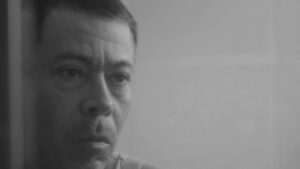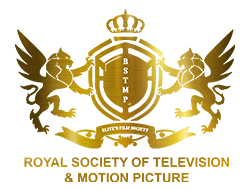
Sonata For A Calendar | Interview
RSTMPA: Why did you choose to shoot your film in black and white?

Carmen Rosa Vargas: We decided on black and white because we felt that the range of grays helped this particular story, to focus the action on the character, without diminishing the narrative importance of space. We also wanted to convey this very Lima atmosphere, with a particularly gray sky that illuminates the rooms with a soft light due to the natural fog and gives us a very high dynamic range of tones and contrasts.
RSTMPA: The film showcases the art of crafting a compelling story with just one character. This is such a rare concept. How did you come up with this?

Carmen Rosa Vargas: Thank you so much! Being absolutely honest, independent cinema made in third world countries like Peru demands creative forms of expression from you as a filmmaker, mainly due to the low budget. I try never to be pretentious. Making art implies finding a way to express yourself in my case, as a filmmaker, to the best of your ability. So it was. The budgetary challenge was to tell an attractive story, with a character and in a location. That is why I had to think of a specific actor for the short film and after seeing the work of Oswaldo Salas in “Extirpator of Idolatries” I wrote “Sonata For A Calendar” thinking of him. When I showed him the script, he was delighted and offered me his house to film the short. It was the perfect location, just as I had imagined. We summoned Manuel Siles, the director of the aforementioned film, to direct the actors, Marco Alvarado for the direction of photography and finally the producers José Vargas and Mario Taglione, convinced of the proposal and with great faith in the project, gave us the logistics for the realization. And so all those involved in the project. Without that tremendous team, “Sonata For A Calendar” would not have had that result.
RSTMPA: The music score in “Sonata For A Calendar” is praised for complementing the story and enhancing the overall experience. Can you please explain why you choose Beethoven’s track specifically as the background music?
 Carmen Rosa Vargas: Thanks a lot! That they say that comforts my spirit enormously. I was highly criticized in my country for this very reason. Even at a national independent film festival they had the audacity to ask me to remove the music to present it in the international competition. Of course I flatly refused and I have never won an award in my own country. There is a saying here “no one is a poet in his land” maybe that is true.
Carmen Rosa Vargas: Thanks a lot! That they say that comforts my spirit enormously. I was highly criticized in my country for this very reason. Even at a national independent film festival they had the audacity to ask me to remove the music to present it in the international competition. Of course I flatly refused and I have never won an award in my own country. There is a saying here “no one is a poet in his land” maybe that is true.Thank you very much for the question, I am from the generation that shared their childhood with handmade cartoons, whose company in action was always the music classics. I incorporated the beauty of the audiovisual image from a very young age, which is why I trained in cinema and while I was studying at the university I met the masters of silent and black and white cinema, whose works were always accompanied by wonderful musical pieces and that made the experience was always special. Different from talkies. That was the inspiration for “Sonata For A Calendar”. Since my character would have no dialogue, why not pay homage to those moving image pioneers and supercharge the cinematic experience for the viewer? It was so that, searching in the most intimate of my memories, I came to the Piano Sonata No. 8 in C minor, Op. 13, (commonly known as Sonata Pathétique) of Maestro Ludwig van Beethoven. Who would have thought, that he had written that piece for my short.


